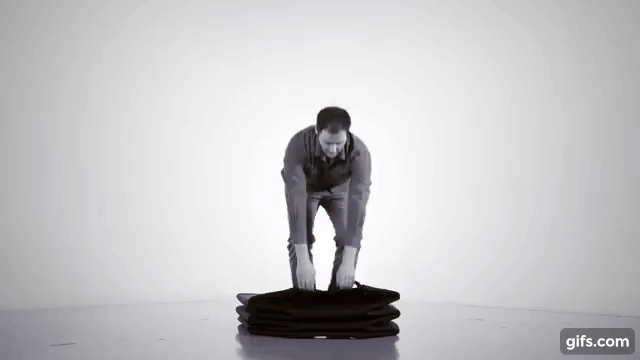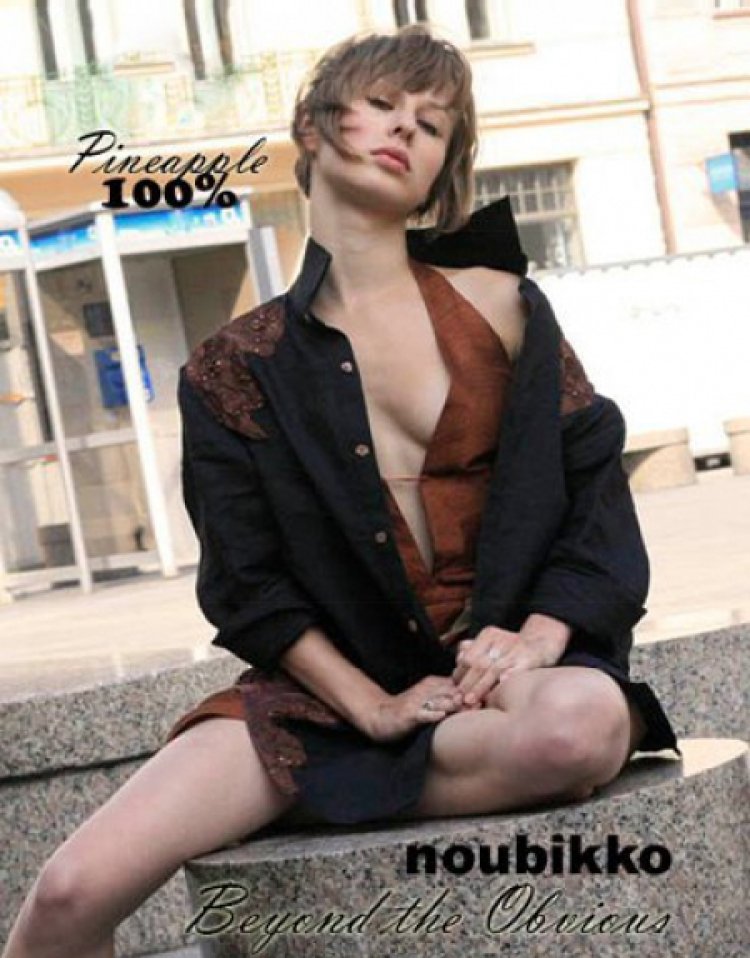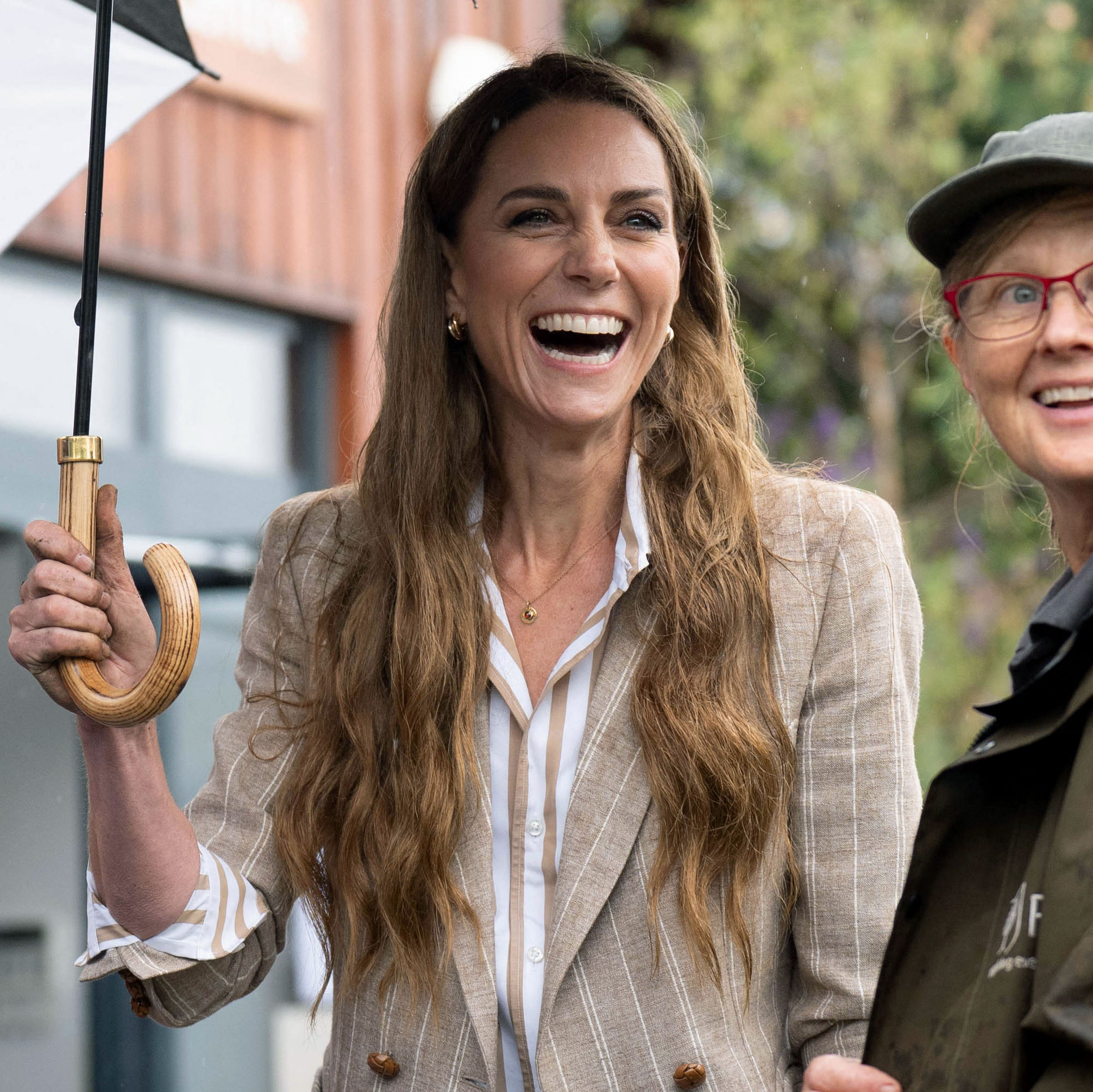Sofía Vergara Embraced Spanish For "Griselda" - and Now She's Making Emmys History
Last week, Sofia Vergara made history at the Emmys as the first Latina to be nominated for best lead actress in a limited series for her role in Netflix's "Griselda." This nomination comes after years of Vergara battling a double-edged sword: her undeniable talent and her Colombian accent, which were both part of the path she'd carved with her iconic portrayal of Gloria Pritchett on "Modern Family." Despite the success that "Modern Family" had - winning 22 Primetime Emmy Awards and garnering 85 nominations since its 2009 debut - Vergara has been vocal about the limitations the industry placed on her because of her accent. "I'm always looking for characters because there's not much that I can play with this stupid accent," she told the Los Angeles Times earlier this year. "I can't play a scientist or be in 'Schindler's List.' My acting jobs are kind of limited." With Salma Hayek being a rare exception, Latina actresses with accents often find themselves relegated to stereotypical roles like fiery maids or sassy best friends. Take Rosie Perez, for instance. The Puerto Rican actress known for her roles in Spike Lee's "Do the Right Thing" and "White Men Can't Jump" has spoken out about how her Puerto Rican Brooklyn accent often limited the roles she landed. Her role in "White Men Can't Jump" was originally intended for an Italian or Irish American actress, but she eventually proved she was the perfect fit for the role. "Yes, my accent was strong. Yes, I was Brooklyn. Yes, I was poor, but did that mean I should be limited to only playing unintelligent, downtrodden, and humiliating stereotypes?" she wrote in her 2014 memoir "Handbook for an Unpredictable Life. Related: "Betty La Fea" Is Back. Here’s Why Latines Have Been Awaiting the New Series Americans' tendency to view accents through a biased lens has always been an uphill battle for Latine actors. Judgment towards people with heavy ethnic accents is a persistent issue and a prejudice that actors with British or Australian accents rarely face. This is a form of discrimination that needs to be dismantled. While Perez, Hayek, and Vergara are undeniable stars, such has been the case for many Latina actresses with strong accents. The industry has been hesitant to embrace the full spectrum of what Latina actresses can offer, creating a barrier for those who couldn't (or wouldn't) shed their accents. As Vergara herself has said, it was frustrating to be considered less intelligent simply because her English wasn't flawless. "Do you even know how smart I am in Spanish?" is one of her most quoted lines from "Modern Family," highlighting the unfair assumption that an accent is equated to a lack of fluency or intellect. Then came "Griselda," a limited series on Netflix in which Vergara embraced her heritage and accent, and spoke primarily Spanish. In this role, she wasn't just allowed - she was encouraged to speak Spanish. It was in this role, portraying the ruthless drug lord Griselda Blanco, that the world finally witnessed the full depth of Sofia's acting talent. While it was unfortunate that a drug-trafficking narrative became the platform, her performance was incredible and showcased her talent beyond comedic roles. This highlights a crucial point. Latinos are an integral part of American society, and Spanish is a widely spoken language. Diversifying representation goes beyond casting; it's about creating stories where Latine experiences take center stage, even if those stories unfold primarily in Spanish. Latines are not a niche audience; they are the very fabric of America, and Spanish is a primary or secondary language for millions. Vergara's Emmy nomination wasn't just a personal triumph; it was a beacon for change. Shows like "Narcos," "La Casa de Papel," and films like "Roma" have proven that the audience for projects that prominently feature Spanish dialogue not only exists but can indeed be a potent force. It's time to break the mold and embrace the richness of multilingual storytelling, creating possibilities for more productions featuring talents like Vergara as well as up-and-coming Latine stars. Vergara's historic nomination is a pivotal moment not just for her, but for countless Latine actors yearning for the chance to showcase their full potential. This wasn't just about an Emmy; it's a call for Hollywood to embrace the richness of Latine stories and recognize that representation goes beyond just faces. It's about shattering barriers and paving the way for a future using the power of language reflected around the vibrant tapestry of our diverse voices. Kimmy Dole is a contributor for PS Juntos known for her sharp insights and compelling storytelling. An entertainment enthusiast, Kimmy immerses herself in the glitz of the industry, delivering a captivating blend of celebrity interviews, insights from industry experts, an
:quality(85):upscale()/2024/07/22/893/n/1922283/eb156998669ec07a82a307.25086021_.jpg)

Last week, Sofia Vergara made history at the Emmys as the first Latina to be nominated for best lead actress in a limited series for her role in Netflix's "Griselda." This nomination comes after years of Vergara battling a double-edged sword: her undeniable talent and her Colombian accent, which were both part of the path she'd carved with her iconic portrayal of Gloria Pritchett on "Modern Family." Despite the success that "Modern Family" had - winning 22 Primetime Emmy Awards and garnering 85 nominations since its 2009 debut - Vergara has been vocal about the limitations the industry placed on her because of her accent.
"I'm always looking for characters because there's not much that I can play with this stupid accent," she told the Los Angeles Times earlier this year. "I can't play a scientist or be in 'Schindler's List.' My acting jobs are kind of limited."
With Salma Hayek being a rare exception, Latina actresses with accents often find themselves relegated to stereotypical roles like fiery maids or sassy best friends. Take Rosie Perez, for instance. The Puerto Rican actress known for her roles in Spike Lee's "Do the Right Thing" and "White Men Can't Jump" has spoken out about how her Puerto Rican Brooklyn accent often limited the roles she landed. Her role in "White Men Can't Jump" was originally intended for an Italian or Irish American actress, but she eventually proved she was the perfect fit for the role.
"Yes, my accent was strong. Yes, I was Brooklyn. Yes, I was poor, but did that mean I should be limited to only playing unintelligent, downtrodden, and humiliating stereotypes?" she wrote in her 2014 memoir "Handbook for an Unpredictable Life.
Americans' tendency to view accents through a biased lens has always been an uphill battle for Latine actors. Judgment towards people with heavy ethnic accents is a persistent issue and a prejudice that actors with British or Australian accents rarely face. This is a form of discrimination that needs to be dismantled.
While Perez, Hayek, and Vergara are undeniable stars, such has been the case for many Latina actresses with strong accents. The industry has been hesitant to embrace the full spectrum of what Latina actresses can offer, creating a barrier for those who couldn't (or wouldn't) shed their accents.
As Vergara herself has said, it was frustrating to be considered less intelligent simply because her English wasn't flawless. "Do you even know how smart I am in Spanish?" is one of her most quoted lines from "Modern Family," highlighting the unfair assumption that an accent is equated to a lack of fluency or intellect.
Then came "Griselda," a limited series on Netflix in which Vergara embraced her heritage and accent, and spoke primarily Spanish. In this role, she wasn't just allowed - she was encouraged to speak Spanish. It was in this role, portraying the ruthless drug lord Griselda Blanco, that the world finally witnessed the full depth of Sofia's acting talent. While it was unfortunate that a drug-trafficking narrative became the platform, her performance was incredible and showcased her talent beyond comedic roles.
This highlights a crucial point. Latinos are an integral part of American society, and Spanish is a widely spoken language. Diversifying representation goes beyond casting; it's about creating stories where Latine experiences take center stage, even if those stories unfold primarily in Spanish. Latines are not a niche audience; they are the very fabric of America, and Spanish is a primary or secondary language for millions.
Vergara's Emmy nomination wasn't just a personal triumph; it was a beacon for change. Shows like "Narcos," "La Casa de Papel," and films like "Roma" have proven that the audience for projects that prominently feature Spanish dialogue not only exists but can indeed be a potent force. It's time to break the mold and embrace the richness of multilingual storytelling, creating possibilities for more productions featuring talents like Vergara as well as up-and-coming Latine stars.
Vergara's historic nomination is a pivotal moment not just for her, but for countless Latine actors yearning for the chance to showcase their full potential. This wasn't just about an Emmy; it's a call for Hollywood to embrace the richness of Latine stories and recognize that representation goes beyond just faces. It's about shattering barriers and paving the way for a future using the power of language reflected around the vibrant tapestry of our diverse voices.
Kimmy Dole is a contributor for PS Juntos known for her sharp insights and compelling storytelling. An entertainment enthusiast, Kimmy immerses herself in the glitz of the industry, delivering a captivating blend of celebrity interviews, insights from industry experts, and the latest pop culture trends. Her work offers readers a genuine and relatable perspective, especially when exploring the complexities of relationships.






















